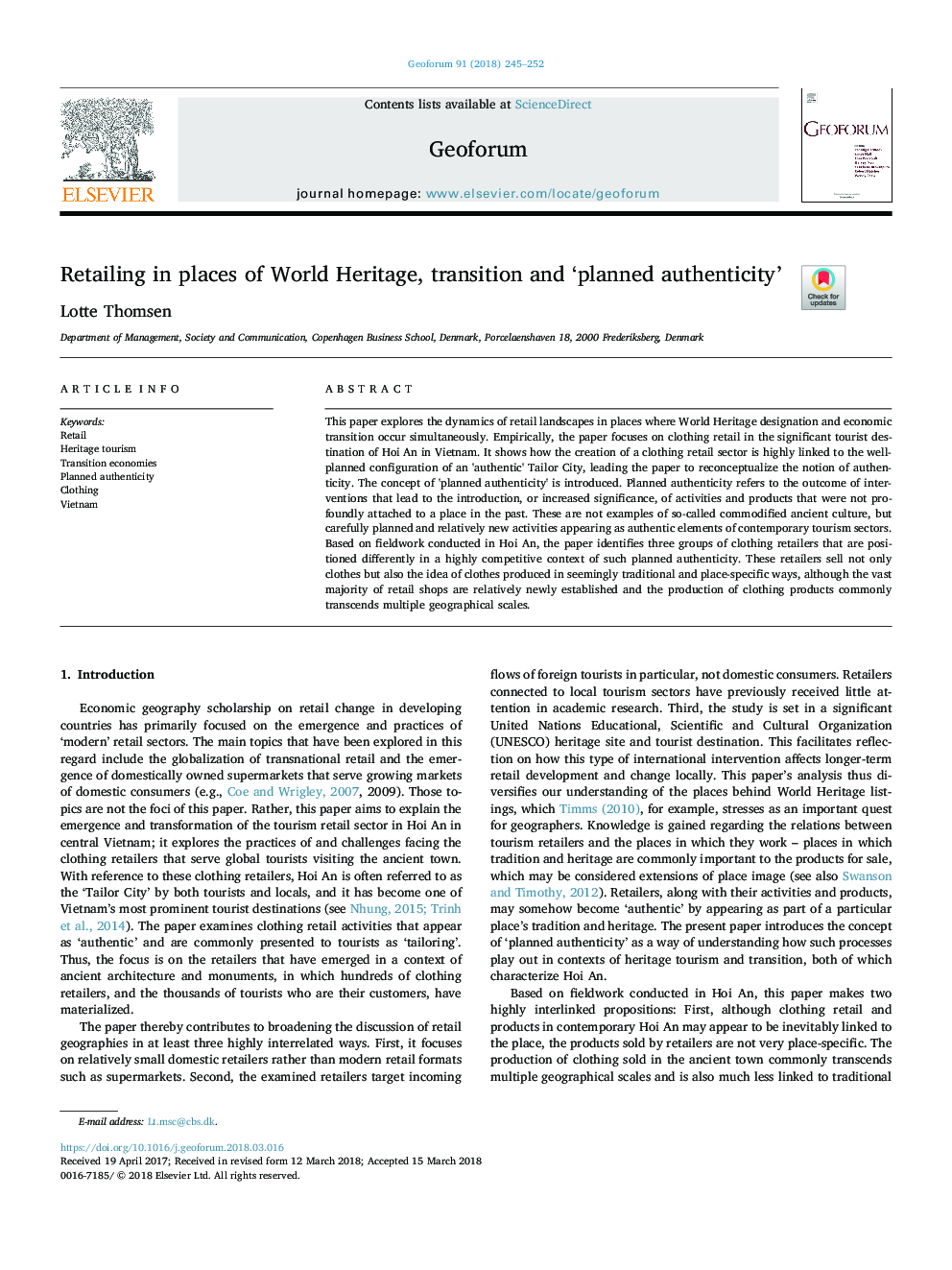| Article ID | Journal | Published Year | Pages | File Type |
|---|---|---|---|---|
| 7353667 | Geoforum | 2018 | 8 Pages |
Abstract
This paper explores the dynamics of retail landscapes in places where World Heritage designation and economic transition occur simultaneously. Empirically, the paper focuses on clothing retail in the significant tourist destination of Hoi An in Vietnam. It shows how the creation of a clothing retail sector is highly linked to the well-planned configuration of an 'authentic' Tailor City, leading the paper to reconceptualize the notion of authenticity. The concept of 'planned authenticity' is introduced. Planned authenticity refers to the outcome of interventions that lead to the introduction, or increased significance, of activities and products that were not profoundly attached to a place in the past. These are not examples of so-called commodified ancient culture, but carefully planned and relatively new activities appearing as authentic elements of contemporary tourism sectors. Based on fieldwork conducted in Hoi An, the paper identifies three groups of clothing retailers that are positioned differently in a highly competitive context of such planned authenticity. These retailers sell not only clothes but also the idea of clothes produced in seemingly traditional and place-specific ways, although the vast majority of retail shops are relatively newly established and the production of clothing products commonly transcends multiple geographical scales.
Related Topics
Social Sciences and Humanities
Economics, Econometrics and Finance
Economics and Econometrics
Authors
Lotte Thomsen,
